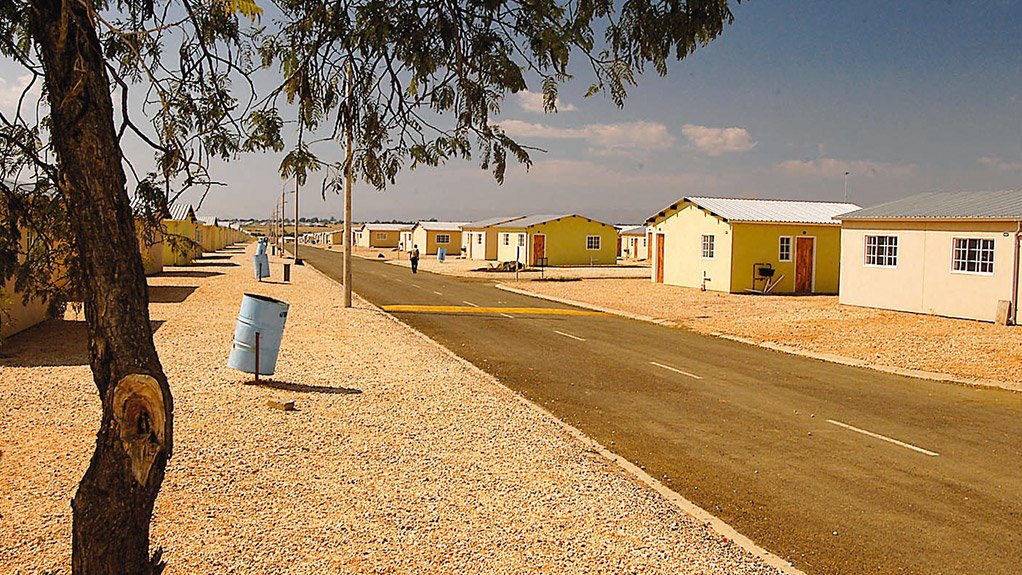Government aimed to fast-track certain “fast-growing” infrastructure programmes, despite cutting back on expenditure over the next few years, the 2014 Medium-Term Budget Policy Statement (MTBPS) revealed on Wednesday.
The MTBPS, released by new Finance Minister Nhlanhla Nene, proposed a series of measures to reduce the budget deficit to 2.5% within three years and stabilise public debt to ensure the sustainability of South Africa’s most important public spending programmes in a weaker economic environment.
While National Treasury lowered its expenditure ceiling, which would require some downward adjustments in government’s spending plans over the next two years, certain projects and initiatives would remain intact.
These included post-school education and training; employment; labour affairs and social security funds; housing development and social infrastructure.
A National Treasury allocation of R560-billion, growing by 8.1% a year, would accelerate housing and social infrastructure development, including electricity, potable water, sanitation and public transport infrastructure over the next three years.
The MTBPS indicated that this formed part of government’s aims of transforming South Africa’s urban spaces, encouraging greater integration of residential areas and bolstering employment and trade, while balancing support for urban growth and delivering rural services.
“Government proposes to shift funds within this function group to support high-priority infrastructure projects, including the repair and restoration of infrastructure damaged in natural disasters and floods, and to manage the effects of acid mine drainage,” the document noted.
The State was currently reviewing its approach to deliver effective and affordable housing that would assist in the densification of cities and deal with spatial legacy issues.
To this end, government would support cities in their quest to promote growth and transform urban spatial patterns through the establishment of a project preparation facility to assist municipalities in their preparation for plans that are ready for implementation; expanding the infrastructure delivery management system from provinces to large cities and assisting with borrowing strategies.
Over the next three years, government planned to roll out a new approach to local government infrastructure financing, with incentives available to large urban municipalities promoting more compact, efficient and equitable cities.
“National government will work with municipalities to expand their direct contributions to investment, and [a reformed] grant system will allow for more flexibility in the design of locally appropriate solutions. Greater integration between the capital investment plans of State-owned companies and city development strategies will be encouraged,” the document detailed.
The MTBPS also outlined plans for government to work with private investors and development finance institutions to expand debt financing for municipal infrastructure, citing initiatives put forward by the Development Bank of Southern Africa to encourage greater private investment in the municipal infrastructure market through infrastructure bonds, municipal bond underwriting, project finance and various contracting models.
Meanwhile, economic infrastructure, which was allocated R230-billion – or 5% of total spending for the three-year period – would see a shift in priorities under the current budget constraints.
The completion of major energy, transport and logistics projects over the medium term would boost the growth potential of the economy, particularly after supply failures in electricity, water and postal services hurt the economy and dragged public confidence, National Treasury said in the document.
Government planned to shift funds from existing road allocations at provincial and national level to the Moloto road project.
Financial resources would also be cut from the nationwide solar water heater programme, after capacity constraints led to underspending, and injected into programmes supporting the roll-out of broadband infrastructure.
Further, any surpluses in the Water Trading Account would be used to ease critical service delivery pressures in bulk water and reticulation.
EMAIL THIS ARTICLE SAVE THIS ARTICLE
To subscribe email subscriptions@creamermedia.co.za or click here
To advertise email advertising@creamermedia.co.za or click here











